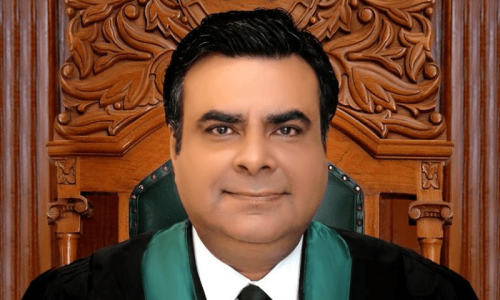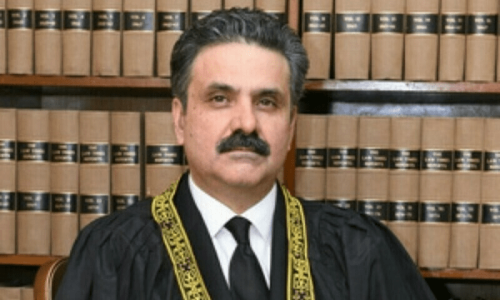HYDERABAD, Aug 19: Mr Justice Rana Bhagwandas, senior judge of the Supreme Court, has said that the judiciary at higher level has been able to acquire independence to a reasonable extent but it is not enough because courts at grass-roots level are yet to achieve independence.
Speeking at a dinner hosted in his honour by the High Court Bar Association (HCBA) and Hyderabad District Bar Association (HDBA) at a local hotel on Saturday, he said that it was utmost important for a judge to have complete sense of protection while safeguarding judicial independence so that in case he gave decisions unpalatable to the executive he should not have fear of being sacked.
He said “Judges must be assured that their judgements will not cause their removal from office and they should also be completely free from apprehensions that their disagreeable views will lead to undeserved punishment.”
In his opinion, every official was responsible for every act done without legal justification to the same degree as any other citizen. Similarly, the argument of state necessity is not sufficient to establish the existence of a power or duty which entitles a public body to act in a way that interferes with rights or liberties of individuals, he stressed.
“Throughout the country victims of violence and injustice are waiting - waiting for us to keep our word. They notice when we use words to mask inaction. They notice when laws that should protect them are not applied,” he said.
“Ultimately, that will depend on the hold that the law has on our conscience. Today, we must look again into our collective conscience and ask ourselves whether we are doing enough,” he said, adding, that what he had stated was possible only when judicial apparatus of the state was powerful, strong and independent.
The need for an independent judiciary becomes more than inevitable during periods of supra-constitutional deviations. “During such periods judicial thinking as an independent prism guarantees security to the apartheid, the weak and the powerless and keeps on reminding the blind and black power to restrain while serving as a safe asylum for the downtrodden, the distressed and the deprived segments of the society,” he elaborated.
Successive governments since the country’s birth had been appealing for unity, which had eluded the people of Pakistan as the country had been running into crisis after crisis, each graver than the preceding one, he said reading out the written speech.
“Ours is not the only country caught in vicious cycle (of crisis) as many countries have been able to settle similar problems and move ahead with added strength, which comes from resolution of basic internal issues,” he remarked.
But, he stressed “there will be no end to our troubles until people are allowed to determine their future freely... and feel free to exercise their best judgement”.
A society where civil liberties are non-existent or existed only in name is a slave society because they hold key to future happiness and national unity and stability, he observed.
He believed that stability comes from existence of permanent institutions and rule of law. “Strictly speaking, law is a body of rules recognised by the state and courts and practised for the dispensation of justice,” he said.
Justice Bhagwandas said that everyone, high or low, is equal in the eyes of law as the status, position and power of a person or institution disappear when law is enforced and justice is administered.
“It is a safeguard against arbitrary governance and implies both obedience to positive law and formal checks and balances on the rulers and judicial officers,” he said.
A judge should be a staunch upholder of rule of law and adjudicate issues on the basis of age-old precept relating to equal justice under law, which presupposes impartiality and demands freedom from personal affiliation, party politics, extraneous pressure and prejudices, said Mr Bhagwandas.
He said that independent judiciary is regarded as an essential ingredient of democracy, stability, peace and tranquillity and maintenance of law and order and it depends to a considerable degree on the interpretation of constitution and legislative instruments by superior courts.
Mr Justice Ghulam Rabbani, senior judge of Sindh High Court, and Mr Justice Sarmad Jalal Usmani, also attended the dinner.















































Dear visitor, the comments section is undergoing an overhaul and will return soon.